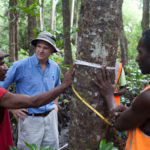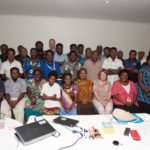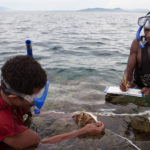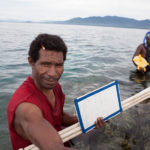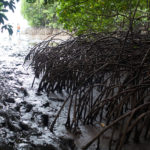Many coastal communities in Papua New Guinea are particularly vulnerable to change. Global drivers such as peak oil, fluctuating economic conditions and climate change all have complex impacts on local livelihoods.
In response to rapid and accelerating rate of change and uncertainty, CSIRO research helps make predictions of their potential impacts and allowing groups to plan proactively. This requires designing flexible strategies that can bring benefits under a variety of future conditions.
Planning sustainable development for such uncertain futures is a key area of research for CSIRO. The design of development programs which can improve livelihoods and achieve the United Nations Human Development Goals, while also being adaptive and flexible to uncertain futures, is a big challenge. Such planning must include the multiple groups which have an interest in development, including members of the local communities, government, civil society and international donors.
Our research project “Climate futures, ecosystem services and livelihood adaptation strategies in West New Britain Province, PNG” explored these issues. From 2011-2013, we worked with local communities, non-governmental organisations and government groups to develop a framework using CSIRO science to help inform future decision-making in a collaborative way. We hope you enjoy the video report.
- James Butler and community members monitoring mangrove forest growth in Kimbe Bay, Papua New Guinea
- Adaptation planning meeting, Kimbe Bay, Papua New Guinea
- Locally managed marine area monitors measuring a clam in Kimbe Bay, Papua New Guinea
- Locally managed marine area monitors in Kimbe Bay, Papua New Guinea
- Mangroves. Kimbe Bay, Papua New Guinea.
- Garden food crops in the Kimbe Bay market, Papua New Guinea
- A Women’s Fisheries Group leader discussing options at an adaptation planning meeting, Kimbe Bay, Papua New Guinea

